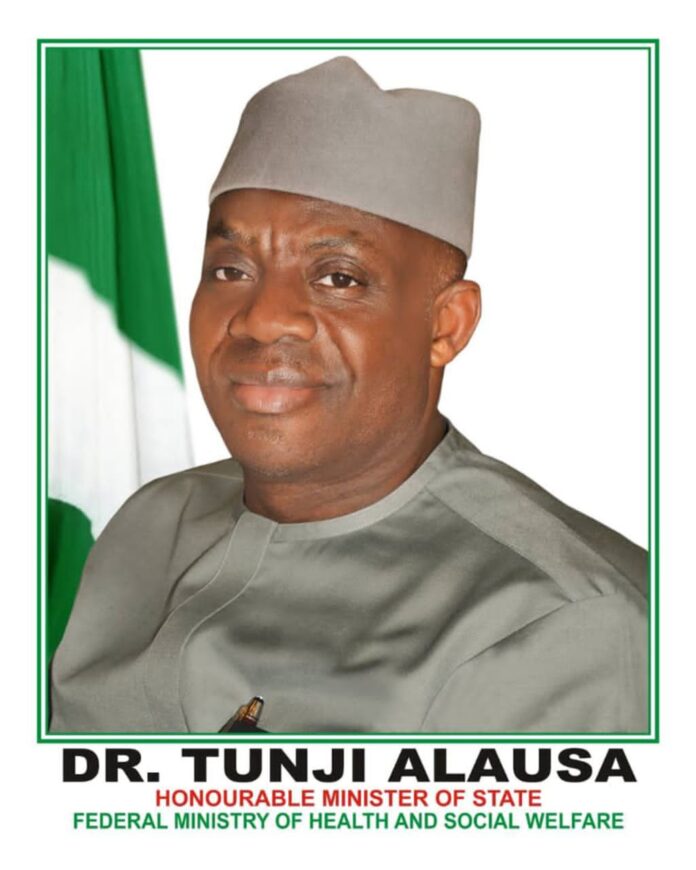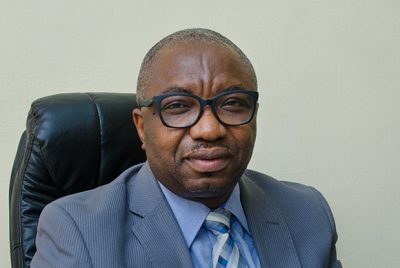The Federal Government has reaffirmed its commitment to fostering stability, development, and sustainability within Nigeria’s healthcare sector.
By Abujah Racheal
The Federal Government has reaffirmed its commitment to fostering stability, development, and sustainability within Nigeria’s healthcare sector.
Dr Tunji Alausa, the Minister of State for Health and Social Welfare, gave the assurance on Thursday in Abuja during the handover ceremony of the National Orthopaedic Hospital Jalingo, Taraba State, to the Ministry of Health and Social Welfare.
Alausa emphasised the importance of governance and population health outcomes as core pillars of the healthcare agenda of President Bola Tinubu’s administration.
He outlined the administration’s four major pillars guiding the ongoing efforts in the country’s healthcare reform, stressing the strides made in strengthening governance within the health sector.
“Today, I stand before you on a path towards stability, development, and sustainability.
“We have been doing a lot to improve governance, which is now a critical vector in the healthcare space,” he said.
According to him, the focus on governance is intended to enhance the efficiency, transparency, and accountability of health services across the country.
He also underscored the ongoing efforts to ensure equitable access to quality healthcare for all citizens, a fundamental step toward achieving long-term national health goals.
“The delivery of the National Orthopaedic Hospital, Jalingo is highlighted as part of key initiatives under the second pillar, including expanding access to primary healthcare services and addressing critical public health challenges.
“The other pillars are expected to address various crucial aspects of the healthcare sector, further demonstrating the government’s dedication to comprehensive and inclusive healthcare reform” he said.
The Deputy Governor of Taraba, Alhaji Aminu Alkali, expressed optimism that the signing of the agreement would mark the beginning of a new era in healthcare for Northern Nigeria.
Alkali said that the proposed hospital would serve as a beacon of hope for communities across the region.
He expressed support for the development of the new hospital, emphasising its potential impact for the local population and for the entire region.
“The concept is not going to only benefit the people of Taraba State.
“Here in Northern Nigeria, we are convinced that after the one in Kano State, our own hospital will be the next vital healthcare center,” he said.
He expressed optimism that if the government provided adequate funding, the hospital could become a leading institution for specialist treatment, addressing the needs of the region and beyond.
“I am sure that this hospital will attract the attention of not only Taraba but the whole country, highlighting the project’s potential national importance,” he said.
In discussions with the hospital’s Medical Director, he reiterated the commitment to ensuring that residents no longer need to seek treatment outside the state.
“We are going to sign an agreement with ministry; we are signing the formalisation of a partnership aimed at advancing healthcare in the region,” he said.
He also underscored the growing recognition of the need for improved healthcare infrastructure in Northern Nigeria.
“As the region continues to face unique health challenges, the proposed hospital represents a significant step towards providing accessible and quality medical care,” he said.
He expressed confidence that collaboration with both local and international partners would bring about tangible improvement in healthcare delivery in the state.
“I hope this will now give the medical director the go-ahead to treat the people of Taraba State and ensure that we don’t travel outside the state again for treatment,” he added.
Earlier, Daju Kachallom, Permanent Secretary of the Ministry of Health and Social Welfare, stressed the need for urgent and decisive action to address critical health challenges facing the nation.
Kachallom expressed the ministry’s determination in finalising long-standing propositions aimed at improving the healthcare system.
“It has taken us two years to finally come up and finalise these propositions.
“We have carefully reviewed and addressed the previous gaps and inefficiencies, and today, we stand ready to move forward,” she said.
She underscored the ministry’s commitment to collaborate with state governments in improving healthcare delivery nationwide.
As Nigeria continues to confront various health challenges, she said that the role of state governors in driving positive change at the grassroots level remain crucial.
(NAN)




